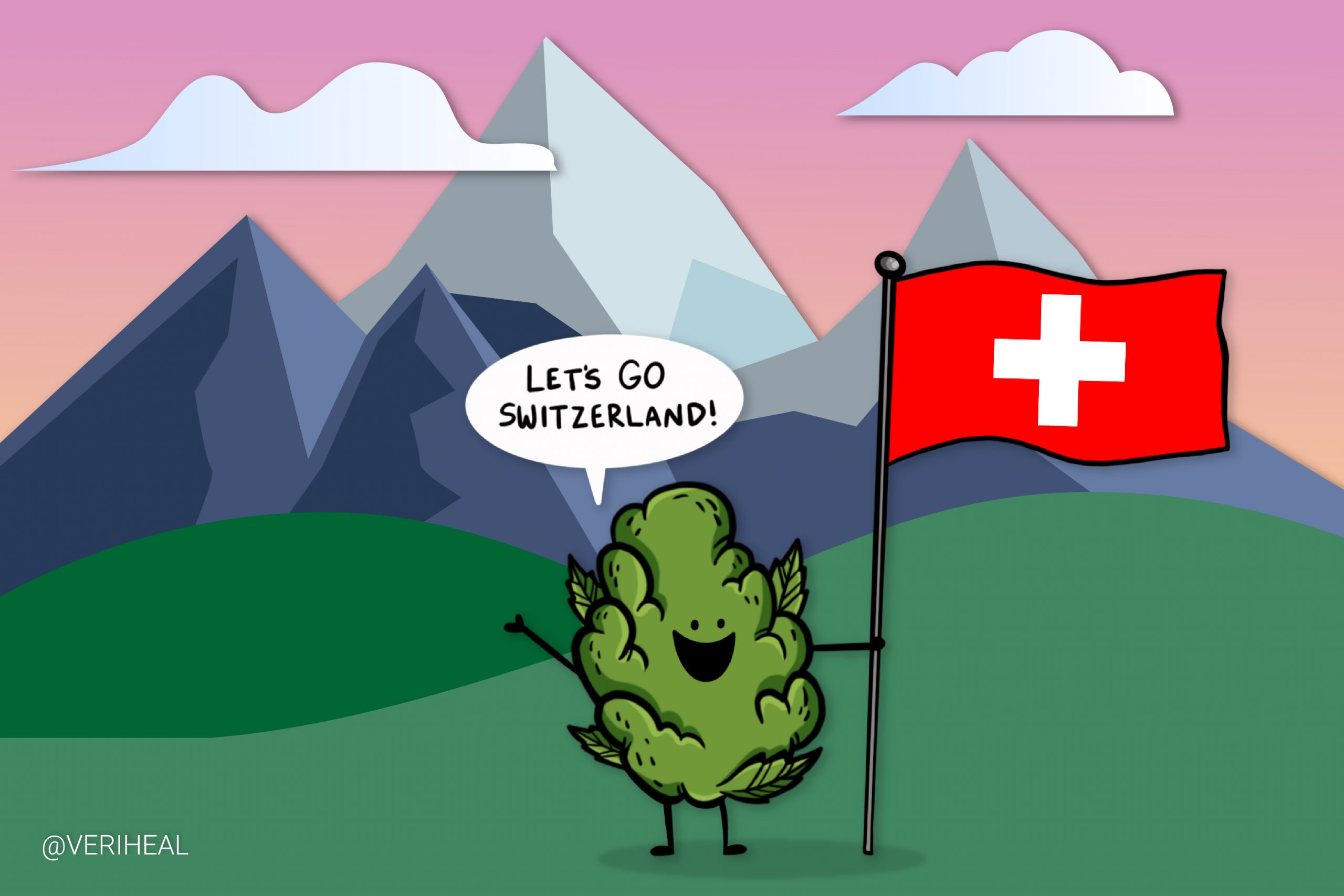Decriminalization and legalization of cannabis may be gaining ground but patients in certain countries are still struggling to access medical cannabis through the legal market. This could be due to a couple of reasons including the near impossibility of obtaining a medical cannabis prescription and license/card as well as due to a lack of sufficient supply. For Switzerland, the reason would be that its citizens have to get permission from the government to get a license for medical cannabis. In other words, in order to consume an inexpensive and effective substance, you would need to fund the expense of getting permission for an exceptional license from the Office of Public Health. Fortunately, Switzerland has begun making moves towards broadening medical cannabis access by allowing physicians to give permission- however, they also rejected some consumer-agreeable proposals.
What Is The Current Legal Status Of Cannabis In Switzerland?
Hemp and anything that derives from it with a tetrahydrocannabinol (THC) content of less than 1% have not been considered illegal under Swiss law since 2011. However, many see 2017 as a landmark since it became possible to produce and market the plant as long as the THC content stays below 1%. Swiss Info explains that the number of registered producers jumped from five in 2017 to around 630 in 2018. With federal law ruling on cannabis in 2017, they no longer fine for possession of small amounts (10 grams or less), however, they are still fines for the consumption of cannabis since the consumption is still illegal. In other words, recreational use of cannabis is illegal but the fines are becoming increasingly reduced. The only recreational use that is legal is if the products contain less than 1% of THC. Medical cannabis is also legal in Switzerland but requires an exceptional license- which has been challenging to attain.
Switzerland has also put together cannabis clubs in Geneva, Basel, Bern, and Zürich which they intended to study for four years in order to establish their utility. The clubs were said to be limited to 2,000 members but unfortunately, these clubs have since been closed down. The Federal Office of Public Health closed the cannabis clubs in 2017. Now, the Swiss National Council has approved a Federal Council proposal that will amend the narcotics law, thus making it easier to access medical cannabis.
Making the Process to Get Medical Cannabis Easier
Though the proposal is approved by the Swiss National Council is Switzerland’s lower house, it still needs to get approval from the other legislative house which is called the Council of States (the upper house). If the upper house chooses to approve the proposal, the patients seeking medical cannabis will no longer need special authorization from the country’s Federal Office of Public Health. In other words, patients previously needed approval from the government officials but if the proposal gets approved, they will only need the approval of a physician.
Why You Should Get Your Medical Marijuana Card
Veriheal has satisfied millions of patients nationwide by giving them access to these benefits
- Larger purchase limits
- Peace of mind
- Enhanced legal protection
- Access to higher potency strains
- Save up to 25% on cannabis purchases
- Skip the line at the dispensary
The Swiss physicians will have to obtain a special permit from the Federal Office of Public Health in order to prescribe cannabis to their patients. The prescriptions are said to allow for 12 months’ worth of medical cannabis however, there is currently an incredibly limited number of pharmacies in the entire country which are allowed to dispense medical cannabis- no wonder Switzerland needs to broaden medical cannabis access.
The government will still be responsible for monitoring and regulating the program despite no longer giving patient approval for the program. At this time, the Office of Public Health is only authorizing about 3,000 patients per year to use medical cannabis for one year. But an estimated 200,000 Swiss citizens claim to consume cannabis which ultimately means that products are being obtained through illegal channels. While debating the proposal, an advocate from the Green Liberal Party criticized that the current process as being exceptionally costly and unnecessarily tedious and is encouraging the use of the illicit market.
The Federal Council ended up rejecting the following from the proposal:
- Allowing patients to grow at home.
- Prohibiting smoking as a means of consumption
- Mandating that patients carry their prescriptions with them in case they have a run-in with the law.
It is also uncertain if patients will beable to get reimbursed for their medical cannabis despite bringing up the issue in a lower-house debate. The advocate from Green Liberal Party used an argument, in support of the proposal, which is based on the fact that the United Nations Commission of Narcotic Drugs and the World Health Organization have agreed to reschedule cannabis from its current drug listing. The aim of this argument was to support looser rules and to gain acknowledgment that cannabis is not as dangerous and citizens were once made to believe.
As was predicted, the decision by the U.N Commission of Narcotic Drugs and the World Health Organization (WHO) is impacting the current scheduling and laws surrounding cannabis. When the commission and WHO made the decision to reclassify cannabis, they paved the way for broadening/relaxing already established cannabis regulations and our hope is that countries will continue to follow suit so that patients may be able to benefit from this botanical therapeutic substance.
Author, Share & Comments
















